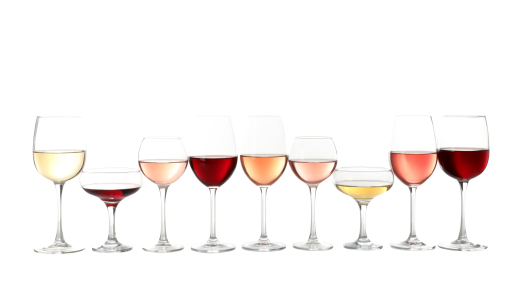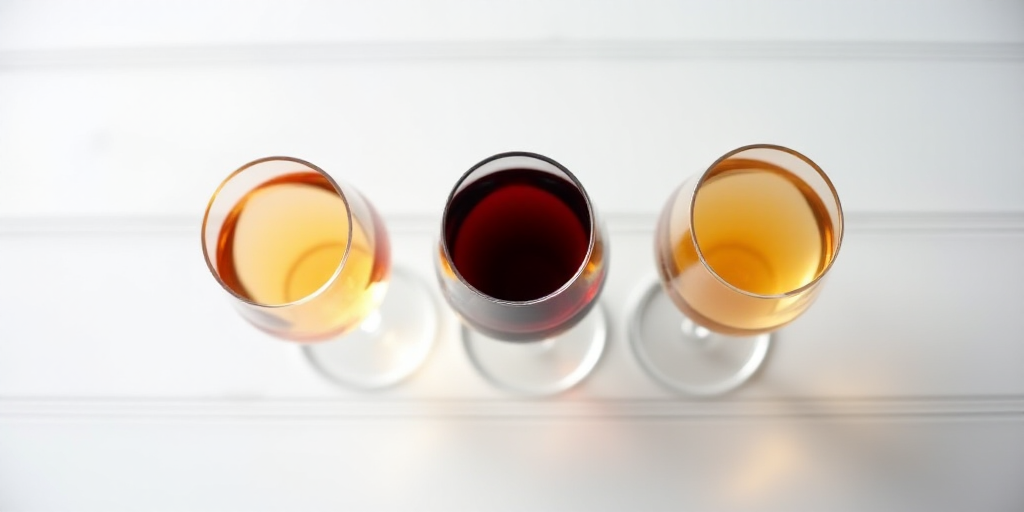Understanding the Antioxidant Content in Different Wines
On this International Wine Day, May 25, take the opportunity to learn about what lies behind your favorite wine’s color and its health benefits. The hue of the beverage reveals much about its advantages, as the primary factor determining antioxidant content is the time the juice spends in contact with the grape skin, where polyphenols—especially anthocyanins and resveratrol—concentrate.
Consequently, red wine is the richest in antioxidants, followed by rosé, which has brief contact with the skin, and finally white wine, which barely uses it during fermentation.
Health Benefits of Each Wine Type
Red Wine:
Red wine offers the most cardiovascular and antioxidant benefits. It contains high levels of resveratrol, a compound that can protect cells from oxidative damage, reduce inflammation, and improve circulation. Additionally, it provides flavonoids, which have been linked to reduced LDL cholesterol.
Rosé Wine:
Rosé wine retains some of the antioxidants found in red wine, though in lower concentrations. It is lighter and more refreshing, ideal for those seeking a less astringent experience. Typically having fewer tannins and being more acidic, it facilitates digestion when consumed with light meals.
White Wine:
White wine contains fewer polyphenols than red, but it may be more tolerable for individuals with gastric sensitivity or tannin allergies. It provides cafeic acid and other antioxidant substances, along with being lower in histamines, making it easier to metabolize for some individuals.

Tipos de vinos
What about Sparkling Wine?
Although usually white or rosé, sparkling wines like cava, brut, or champagne do not stand out for their antioxidant concentration but rather for their low caloric content if they are dry (brut nature). They present an interesting option for those who wish to celebrate without excess.
Which One Should You Choose?
Looking for antioxidants and cardiovascular health? Opt for a dry, young red wine with minimal residual sugar.
Prefer something milder and easier to digest? Rosé is your choice, especially in warm climates.
Interested in a lighter, less astringent wine? White is ideal for light meals or individuals with sensitive stomachs.
Moderation is Key
Remember that these benefits are observed within the context of moderate consumption, meaning one glass (150 ml) a day for women and up to two for men, according to international recommendations. There’s no need to drink wine to be healthy, but if you do, doing so consciously and with good food is the best way to enjoy it.
Key Questions and Answers
- Q: Which wine has the most antioxidants?
A: Red wine is the richest in antioxidants due to its longer contact with grape skins, where polyphenols like anthocyanins and resveratrol concentrate.
- Q: What makes rosé wine unique?
A: Rosé wine retains some antioxidants from red wine but in lower concentrations. It is lighter, more refreshing, and has fewer tannins, making it easier to digest with light meals.
- Q: How does white wine compare in antioxidants?
A: White wine contains fewer polyphenols than red but can be more tolerable for those with gastric sensitivity or tannin allergies. It provides cafeic acid and other antioxidants, along with being lower in histamines.
- Q: Are sparkling wines healthy?
A: While not as high in antioxidants, dry sparkling wines like cava, brut, or champagne have low caloric content and can be a good choice for moderate celebration.
- Q: How do I choose the best wine for my health?
A: For antioxidants and cardiovascular health, select dry, young red wine with minimal residual sugar. For a milder, more digestible option, go for rosé, especially in warm climates. For a lighter, less astringent wine, white is ideal for light meals or sensitive stomachs.
- Q: Is moderation important when consuming wine?
A: Yes, all these benefits are observed within the context of moderate consumption—one glass (150 ml) a day for women and up to two for men, according to international recommendations. Drinking wine consciously with good food is the best way to enjoy it.






